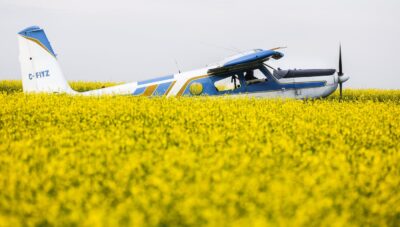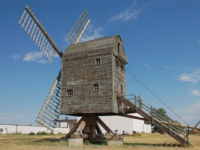Chinese tariff on canola seed comes into force as producers, premiers demand action
By Canadian Press on August 14, 2025.

SASKATOON — A Chinese tariff of nearly 76 per cent on Canadian canola seed came into force Thursday, with Conservative Leader Pierre Poilievre again calling on Ottawa to act.
The duty, announced Tuesday, has already caused the price of one of Canada’s most valuable crops to fall, wiping out millions of dollars in its value.
At a Thursday news conference, Poilievre repeated his call for Prime Minister Mark Carney to cancel a $1-billion federal loan given to BC Ferries, which is purchasing Chinese-made ships.
“That is crazy at a time when they’re targeting our farmers,” he said.
The Tory leader also accused Carney of not caring about western Canadian producers and of showing weak leadership when it comes to signing new trade deals.
“I had my team check his Twitter account. He hasn’t tweeted a single thing about canola. Yet, he’s been able to tweet about International Cat Day,” Poilievre said.
“(Carney) is all talk and no action. Things are not different; they are getting worse.”
The federal agriculture and international trade ministries did not immediately respond to a request for comment over Poilievre’s remarks.
Agriculture Minister Heath MacDonald and International Trade Minister Maninder Sidhu have said they remain ready to speak constructively with Chinese officials to address trade concerns.
Carney failed to meet a self-imposed deadline to get a new trade deal with U.S. President Donald Trump, but has said officials from both countries are still working together. The prime minister has also promised to expand exports to other countries and to routinely speak with China.
The tariff comes one year after China launched an anti-dumping investigation into Canadian canola. It was in response to Canada’s 100 per cent tariff on Chinese electric vehicles.
The two countries have since slapped each other with various levies.
Last year, Ottawa imposed its tariff on Chinese-made electric vehicles and 25 per cent tariffs on Chinese steel and aluminum. Beijing retaliated with 100 per cent tariffs on Canadian canola meal and oil.
China’s latest move on canola seed now means all canola products face levies.
Canola farmers and Ottawa have rejected claims of dumping, arguing exporters have followed rules-based trade.
Farmers and Prairie premiers have called on the federal government to resolve the issue by speaking constructively with Chinese officials.
In a letter to Carney, Saskatchewan NDP Leader Carla Beck urges the prime minister to organize a trade mission to China with the premiers.
“New tariffs on canola seed are a serious threat to Saskatchewan and require urgent action and attention by your government,” Beck writes.
Beck also is asking Carney to consider removing the tariffs on Chinese electric vehicles as a conciliatory measure to end the canola tariffs.
On Wednesday, Manitoba Premier Wab Kinew said Ottawa should use the revenues from its tariffs on Chinese EVs to support canola producers.
He also suggested Canada has collected $100 million in such tariffs, while China’s move has wiped out $1 billion in canola values.
Saskatchewan Premier Scott Moe and the Canadian Canola Growers Association both have said the industry contributes more than $43 billion to the country’s economy and employs roughly 200,000 people.
The association says China is the largest export market for Canadian canola seed, taking up about 67 per cent of Canada’s shipments — worth billions of dollars.
This report by The Canadian Press was first published Aug. 14, 2025.
— By Jeremy Simes in Regina
The Canadian Press
29-28




